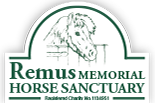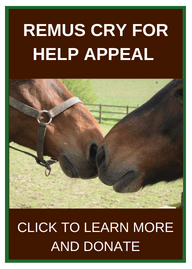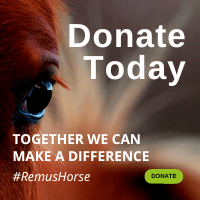
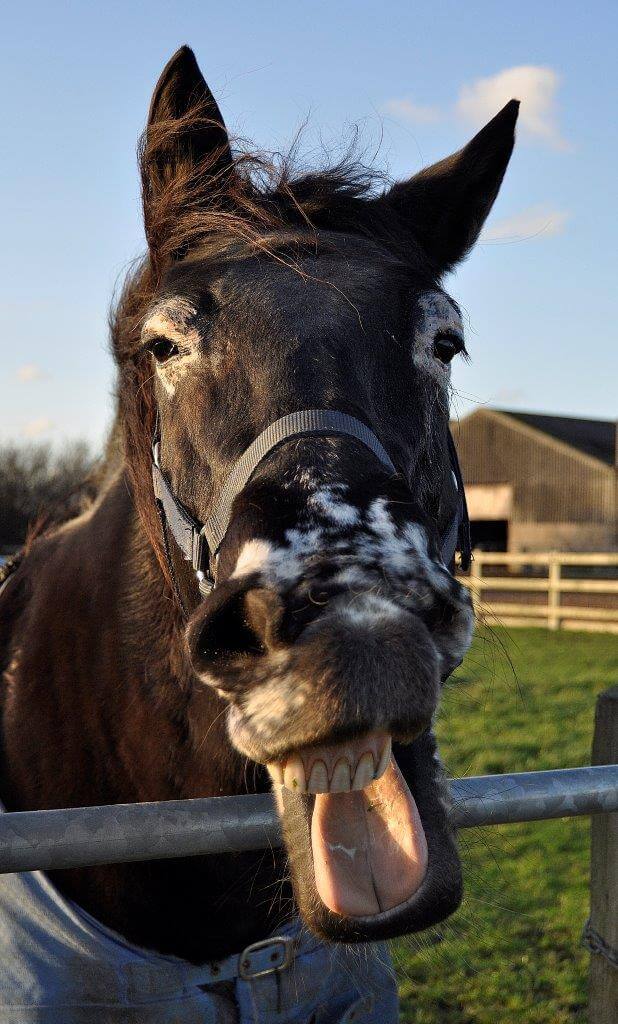
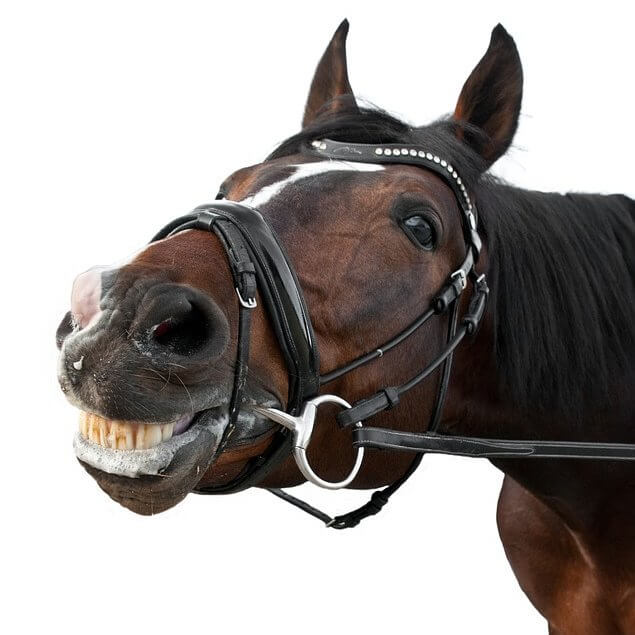
A little long in the tooth?
We all know how hard the pandemic has hit us during 2020. In the horse world, there have been more welfare-related calls to equine charities than ever before and together we are very worried that the country faces a horse welfare catastrophe this winter, as restrictions continue to affect us socially and economically.
Although times are hard, it’s important that every aspect of our horses’ welfare is looked after as usual; even the parts we might think are OK to cut back on ‘just this once’.
A good example is teeth. We don’t ordinarily look at our horses’ teeth, so they can be easily forgotten about. However, dental problems can occur in horses of all ages, as they can in humans. So regular examinations are really important to stop any potential problems in their tracks.
Signs of dental problems can range from a change in appetite (an easy one to notice in most horses!) to headshaking or quidding. Quidding is where they drop their food back out of their mouth. One of the main causes of new arrivals here at Remus being underweight, apart from lack of food, is tooth problems such as painful abscesses.
Even in horses and ponies with healthy mouths, the teeth do wear down with age – between 2mm and 3mm a year – so it’s important to keep them in top condition and alter their management accordingly.
This article from Your Horse has more information on spotting the signs of dental disease: https://www.yourhorse.co.uk/advice/horse-care/articles/spotting-the-signs-of-dental-disease
If you would like to buy a gift for one of our animals this year, or provide hay to feed a tethered horse, you can do so via our website here.
Keeping Your Horse’s Teeth Healthy
We’ve all heard the expression, ‘getting a little long in the tooth’. Of course, it’s an alternative way of saying someone’s getting old! Horses’ teeth grow for much of their life, and wear between 2mm and 3mm a year, as a result of them happily chewing and grinding their food. It’s important that food is broken down properly in the horse’s mouth, as it allows the gut to digest it fully and therefore avoid problems such as weight loss or colic.
Horses are natural trickle feeders, typically eating for up to 18 hours a day, but with modern day winter stabling, this isn’t always the case and we need to be aware of problems that may arise.
The team here at Remus dealt with a lovely pony called Prince, who died within days of us taking him in. We found him in a field rugged up and with food but emaciated and with a huge tooth abscess. His owner loved him but was not aware that, despite feeding him, he was quidding (dropping) most of it back out. She didn’t realise that as he got older his teeth needed more attention.
As well as dropping food, horses with problem teeth might show facial swellings, head shaking or potentially nothing obvious at all. This article from Your Horse magazine sets out the importance of maintaining healthy teeth and what you should be looking out for.
If you would like to receive more news from us, directly to your inbox, please sign up on our website here.
Specialist Dental Care Required for Pony at Sanctuary in Essex
Remus Horse Sanctuary are asking for donations to help one of their ponies – Sparkey – who has had problems with his mouth, teeth and now nostrils, with both Diastema and Periodontal Disease – and will need ongoing veterinary care, medication and possibly surgery.
For some time, the staff at the charity noticed Sparkey’s breath smelling quite badly and on an examination by the vet a Diastema was found. Diastema is a gap between two teeth that allows food to build up. As the food rots down, it causes infection in the gap, known as periodontal disease.
When the food in this gap was cleared, a small piece of wood was found in the gap and further veterinary examinations found that the wood had gone through his gum piercing his nostril. Having endoscoped his nostril it was clear that this piece of wood had been there for a long time causing massive distortion to his nostril. It is not easy to extract a horse’s tooth due to their design and the roots being deep set so Sparkey had to undergo three sessions under sedation to finally be able to remove the tooth.
Sue Burton, Founder of the Sanctuary said, “we have spent many hours with our vet clearing food that had gone through the hole in Sparkey’s nostrils, and now we are trying to sort the hole out. Its too early at this stage to say whether the hole will heal or not and we now have to wait and see. But for now it is packed to prevent any more food going up through the hole into the nostril.”
Sparkey arrived at Remus 4 years ago when his owners were no longer able to provide him with what he needed to live with his Laminitis and Metabolic Syndrome problems.
Sue continued, “dear little Sparkey has been through so much and we still don’t know how this is going to turn out, but he has remained his usual cheery self and within minutes of the sedation wearing off he’s back to himself and calling for company and food!
“He is only 12yrs old, so we want to give him every chance possible, but this of course has already cost veterinary care into thousands of pounds with more vet visits and possibly surgery to sort out.”
This year, Remus Horse Sanctuary is celebrating its 35th Anniversary.
Donations can be made via numerous methods. Full details can be found on the website at: https://www.remussanctuary.org/donate/. For further information, contact Sue Burton on tel: 01277 356191.
